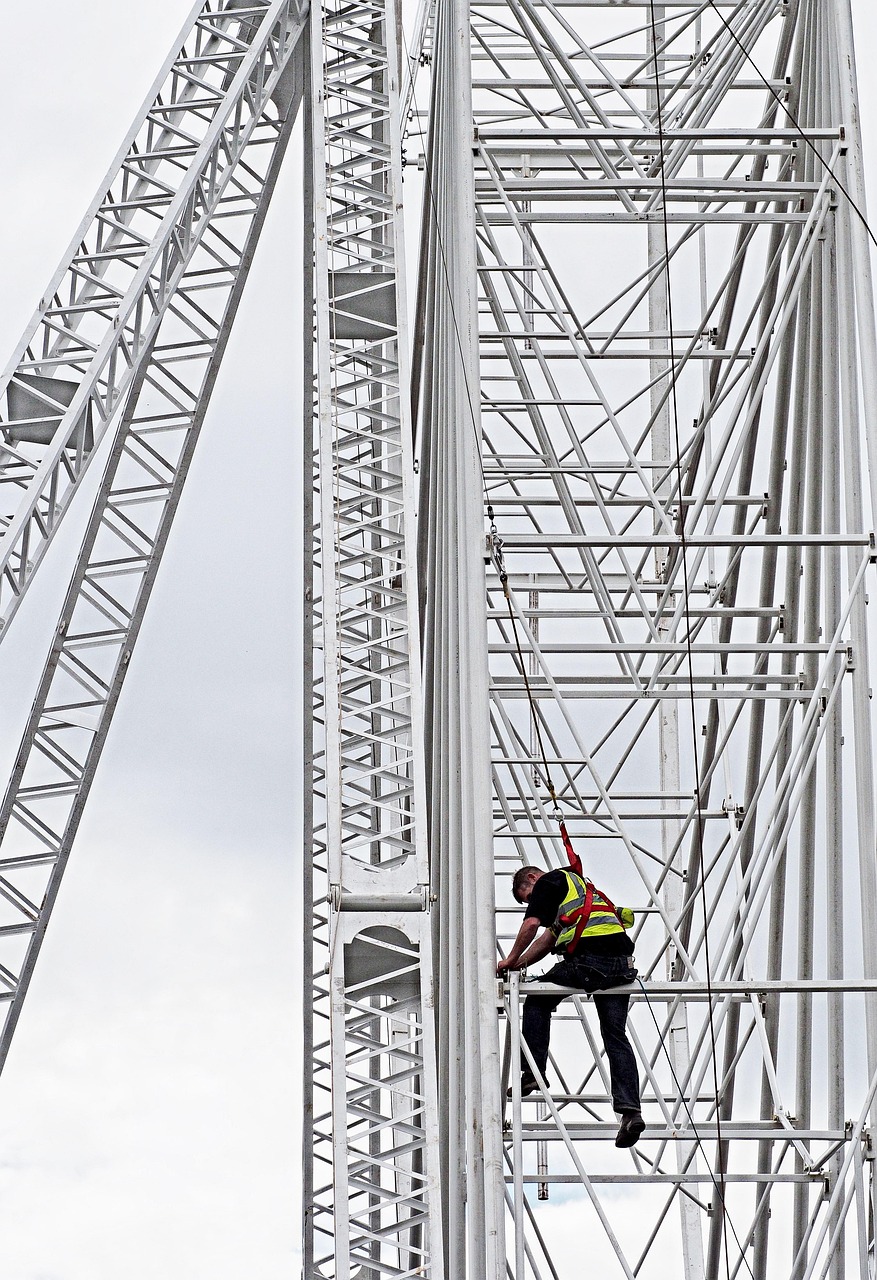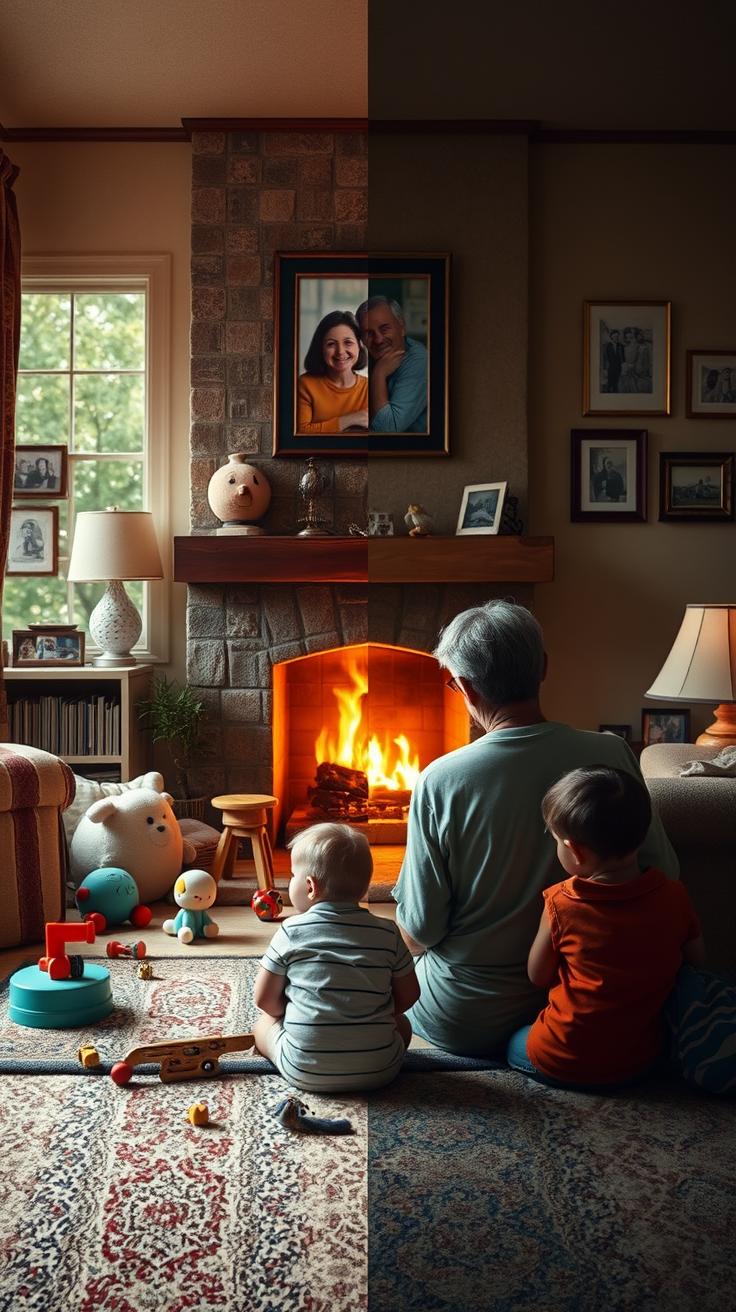AITA for not allowing my kids at their grandparents house?
 Image credit: Pixabay (This is example image – Not the actual photo)
Image credit: Pixabay (This is example image – Not the actual photo)
When Family Ties Clash with Parental Instincts
A mother grapples with a tough decision after discovering her mother-in-law’s home is in shocking disarray, reminiscent of a hoarding situation. Following a recent family tragedy that highlighted the dangers of neglect, she feels compelled to protect her young daughters from a potentially harmful environment. As she navigates the fallout of her decision, she faces backlash from her mother-in-law, who believes she’s being unfair. This relatable dilemma raises questions about family loyalty, child safety, and the lengths parents will go to ensure their children’s well-being.
Family Drama Over Grandparent Visits
A 33-year-old mother of two daughters, aged 2.5 years and 6 months, is facing a family conflict regarding her children’s visits to their grandmother’s house. The situation escalated after a tragic event in the family and a shocking discovery about the living conditions of her mother-in-law’s home.
- Background: The mother’s husband, 30, recently lost his uncle, who lived in deplorable conditions with his 9-year-old son. The uncle’s passing revealed a home that resembled the chaos seen on the TV show “Hoarders.” The child is now living with his mother out of state.
- Discussion on Child Safety: This incident prompted the couple to discuss the importance of monitoring their children’s friendships and ensuring they are not exposed to unsafe environments.
- Discovery of In-Law’s Home Conditions: A few weeks ago, the mother visited her mother-in-law’s house and was horrified by the state of disarray. Despite knowing her mother-in-law, 55, had a tendency to save items, the extent of the mess was alarming. The house was cluttered to the point where paths were the only visible areas, and surfaces were completely covered.
- Concerns for Children’s Safety: After witnessing the conditions, the mother felt it was unsafe for her young children to visit their grandmother’s home. She immediately informed her husband that their daughters would not be allowed to return to that environment.
- Husband’s Support: The husband was understanding and supportive of the decision, recognizing the mother’s concerns stemming from recent family events.
- Mother-in-Law’s Reaction: The mother-in-law reacted negatively, expressing that it was unfair for the children to be barred from visiting her. She feels hurt and is pouting over the situation.
The mother grapples with the emotional weight of her decision, knowing that visits to grandparents are cherished moments for both the children and their grandparents. However, she prioritizes her children’s safety and well-being over familial expectations.
This situation highlights the complexities of family dynamics, especially in the context of conflict resolution and the importance of child safety. The mother is left questioning whether she is in the wrong for restricting her children’s visits to their grandmother’s house, despite the potential for wedding tension and family drama that may arise from her decision.
This is Original story from Reddit
 Image credit: Pixabay (This is example image – Not the actual photo)
Image credit: Pixabay (This is example image – Not the actual photo)
Story
I, 33F, have two daughters, 2.5 and 6 months, with my husband, 30M. Over the summer, my husband’s uncle unexpectedly passed away at 56 years old. Upon his death, it was discovered that he and his 9-year-old son were living in absolute filth.
I’m talking about the stuff you see on the TV show Hoarders. If authorities had been called and seen a child living in that house, there is no doubt in my mind he would have been charged with child abuse and/or neglect. The 9-year-old now lives with his mother out of state.
We had gone several years without knowing that they were living in these conditions, and this promptly started a discussion between my husband and me about how, when our kids get school-aged, we need to speak up right away if we have any feeling this could be going on with any of their friends or classmates. Flash forward to a few weeks ago. I caught a glimpse of the inside of my in-laws’ house.
I always knew that my mother-in-law, 55F, is a saver, to put it nicely. I had seen her house before, and it was always incredibly messy. But this was before she had grandkids.
MIL has been watching my kids part-time since my oldest was born, mostly at our house. However, during the last 6 months of my pregnancy with our second, I would bring my oldest to her and be kept out of the loop about what they were doing and where they were going. This is an entirely other issue that has been resolved, I think.
When I saw the inside of her house, I was absolutely appalled that she would allow my two very young children in that environment. They were not there at the time I saw the house, but they were there just a few days before. I bit my lip and did my best to hide my face while I was there, but immediately called my husband on the way home and told him that neither of the girls were allowed back at that house, ever.
I am admittedly still shaken up with everything that had gone on with his uncle’s house, but looking at the condition of my in-laws’ house, I will not allow my children to be exposed to that. There are paths around the house; you cannot see any part of the kitchen table or counters, and there is no access to the couch, etc.
My husband was very understanding and supportive, but MIL is pouting and says it’s unfair that I won’t let my girls go to Grandma’s house. I know going to Grandma’s house is a special thing for both the grandparents and grandkids. Am I wrong for taking this experience away?
View the Original Reddit Post Here
Summary of Reddit Comments
The top Reddit comments indicate a divided opinion regarding the situation, with many users emphasizing that the original poster (OP) is not at fault (NTA) for wanting to protect her children from an unsafe environment. However, several commenters criticize OP for not checking on her mother-in-law’s living conditions sooner, suggesting a shared responsibility in ensuring the children’s safety. Overall, the comments highlight the complexities of familial obligations and the importance of vigilance in childcare.
Verdict: ESH
Expert Advice for Resolving Family Conflict
Family dynamics can be incredibly complex, especially when it comes to the safety and well-being of children. In this situation, both the mother and the mother-in-law have valid feelings and concerns. Here are some practical steps to help resolve the conflict while addressing the needs of both parties:
Steps for the Mother
- Open Communication: Schedule a calm and private conversation with your mother-in-law. Express your concerns about the living conditions and how they impact your children’s safety. Use “I” statements to avoid sounding accusatory, such as “I felt worried when I saw the state of the house.”
- Offer Support: Instead of just restricting visits, offer to help your mother-in-law declutter her home. This can be a bonding experience and show that you care about her well-being as well.
- Set Clear Boundaries: If the living conditions do not improve, be clear about your boundaries regarding visits. Explain that your children’s safety is your top priority, and you hope to revisit the situation in the future.
Steps for the Mother-in-Law
- Reflect on Feedback: Take time to consider your daughter-in-law’s concerns. Understand that her decision comes from a place of love and protection for her children.
- Seek Help: If you recognize that your living conditions are affecting your family relationships, consider seeking professional help. This could be a therapist or a professional organizer who can assist you in creating a safer environment.
- Communicate Your Feelings: Share your feelings of hurt and disappointment with your daughter-in-law. Honest communication can help bridge the gap and foster understanding.
Joint Steps for Both Parties
- Family Meeting: Consider organizing a family meeting that includes your husband and any other relevant family members. This can provide a platform for everyone to express their feelings and work towards a solution together.
- Focus on Solutions: Shift the conversation from blame to solutions. Discuss what changes can be made to ensure the children’s safety while also allowing for family bonding time.
- Regular Check-Ins: Establish a routine for checking in on each other’s well-being and living conditions. This can help prevent misunderstandings and foster a supportive family environment.
By taking these steps, both the mother and the mother-in-law can work towards a resolution that prioritizes the children’s safety while also nurturing family relationships. Remember, empathy and open communication are key in navigating these sensitive situations.
Join the Discussion
 Image credit: Pixabay (This is example image – Not the actual photo)
Image credit: Pixabay (This is example image – Not the actual photo)
What do you think? Would you have handled this differently?
Share your thoughts below! Vote: Do you agree with Reddit’s verdict?











